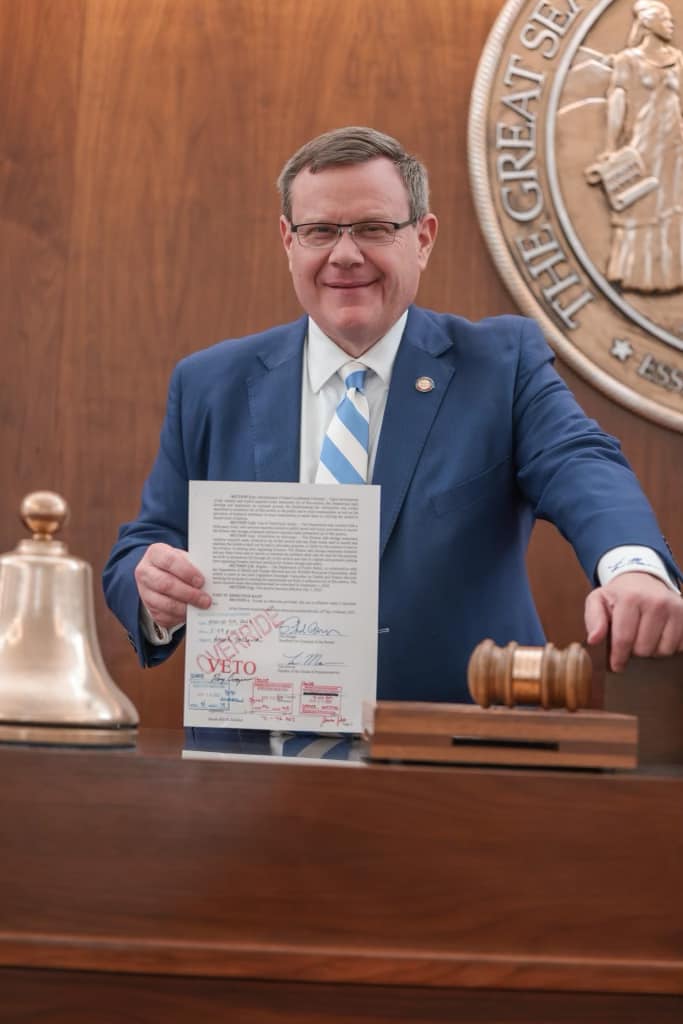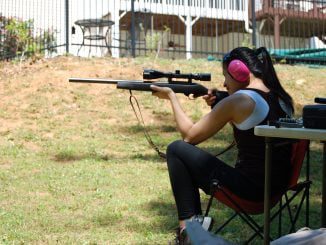RALEIGH — In back-to-back days, both chambers of the General Assembly successfully overrode Democratic Gov. Roy Cooper’s veto of Senate Bill 41, a firearms bill that has a provision repealing the state’s pistol permit purchase process.

“This legislation preserves the Second Amendment rights of North Carolinians by repealing the outdated pistol permit system. It also allows all churches and other places of religious worship to protect their parishioners and launches a statewide firearm safe storage awareness initiative,” House Speaker Tim Moore (R-Kings Mountain) said in a statement. “These have been long-standing goals of Second Amendment advocates in our state, and we have finally brought this legislation over the finish line.”
The repeal of the permit process has also had consistent backing from the N.C. Sheriffs’ Association.
Sens. Danny Earl Britt, Jr. (R-Robeson), Warren Daniel (R-Burke), Jim Perry (R-Lenoir) and Bobby Hanig (R-Currituck) released the following joint statement on Senate Bill 41 becoming law:
“After years of Gov. Roy Cooper obstructing our Constitutional rights, today marks a long overdue victory for law-abiding gun owners in our state. By successfully overriding Gov. Roy Cooper’s veto, we have guaranteed and secured Second Amendment rights for North Carolinians, and set forth a path to overcoming any future impediments from the lame-duck governor.”
The finalized override vote in the Senate was 30-19. In the House, the vote was 71-46.
No House Democrats voted to override the veto, but due to attendance levels, the 71 Republicans were enough to meet the required 60% threshold for an override to be successful.
Rep. Michael Wray (D-Northampton) did not cast a vote. He had voted in favor of passing the bill and was the co-sponsor of a similar House measure. In addition to Wray, two other Democrats did not cast a vote: Reps. Cecil Brockman (D-Guildford) and Tricia Cotham (D-Mecklenburg).
Rep. Shelly Willingham (D-Edgecombe) changed his position on the bill multiple times. He first claimed he would not vote for passage, yet he did end up voting in favor of the bill when the Senate took the passage vote. Willingham also said he would maintain that passage vote, but he then flip-flopped and voted against the override.
Like Willingham, Rep. Marvin Lucas (D-Cumberland) did not stick to his passage vote and voted against the override.
Rep. Destin Hall (R-Caldwell) made the motion to override the veto but also a motion to “move the previous question,” a procedural move to bar further debate and expedite a vote.
“It passed in this House with a veto-proof majority almost two weeks ago,” Hall said in response to objections by Democrats. “Members have heard all the pros and all the cons that they might want to hear.”
House Democratic Leader Rep. Robert Reives (D-Chatham) stood up out of order during the vote, asking Moore, “You mean we aren’t going to even allow 3 minutes for each side to close?”
Moore responded, “There is no debate. We are in a vote.”
Under Senate Bill 41, a person with a valid concealed handgun permit or a person exempt from obtaining that permit is allowed to carry a handgun in a place of religious worship that is also educational property but with certain qualifiers such as the property can’t be owned by a local board of education, county commission, or a public or private institution of higher education.
There must be no posted prohibition for carrying a concealed handgun on the premises and the handgun can only be on the property outside of school hours. Concealed carry is permitted by certain facility employees such as security guards.
A statewide firearm safe storage awareness initiative that includes facilitating the distribution of gun locks and a toolkit for municipalities to launch a local firearm safe storage program is also part of the new law.
“Second Amendment advocates owe thanks to all of the Republican legislators who voted for and supported SB 41 and similar bills. I encourage leadership to leverage this success by joining twenty-five other states in passing constitutional carry,” said Paul Valone, the president of Grass Roots North Carolina, the state’s largest gun rights organization.
Cooper used his 76th veto to strike down the bill, writing in his veto message, “Eliminating strong background checks will allow more domestic abusers and other dangerous people to own handguns and reduces law enforcement’s ability to stop them from committing violent crimes. Second Amendment supporting, responsible gun owners know this will put families and communities at risk.”
Ahead of the Senate override vote, Cooper mentioned the recent school shooting in Nashville perpetrated by the now-deceased Audrey Hale, a 28-year-old transgender individual. Following the House override vote, the governor took to Twitter again.
“Without any debate allowed by GOP leadership because the arguments were too compelling for them to hear, the House voted to override my veto and eliminate strong background checks for handguns in NC,” Cooper tweeted. “Allowing known domestic abusers and mentally ill people to buy handguns puts communities at risk.”
Attorney General Josh Stein, who is running to replace Cooper in 2024, also issued a statement.
“Today’s move by the General Assembly to repeal our pistol permit law has made our communities less safe. Now, dangerous people — like violent criminals and domestic abusers — will be able to more easily get their hands on guns” Stein said. “Gun violence is a terrifying threat, and eliminating background checks will make the job of law enforcement officers more difficult. While our legislators failed us, I’ll continue to do everything in my power to keep people in our state safe.”



